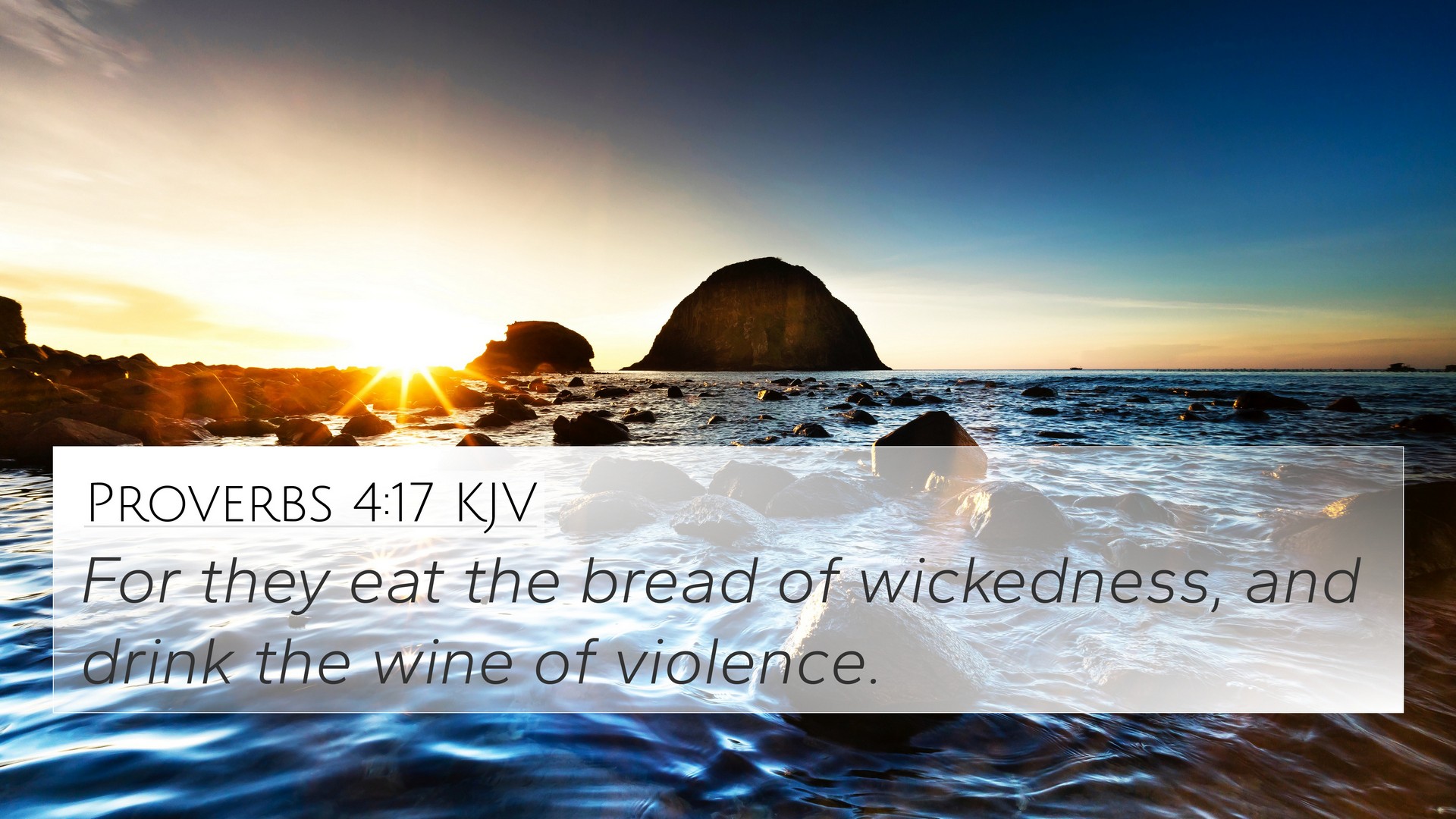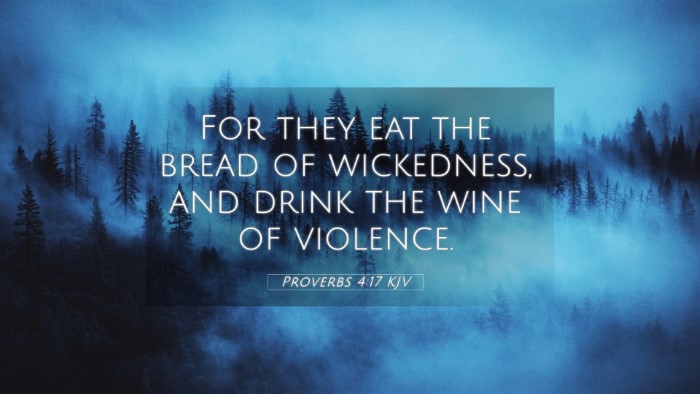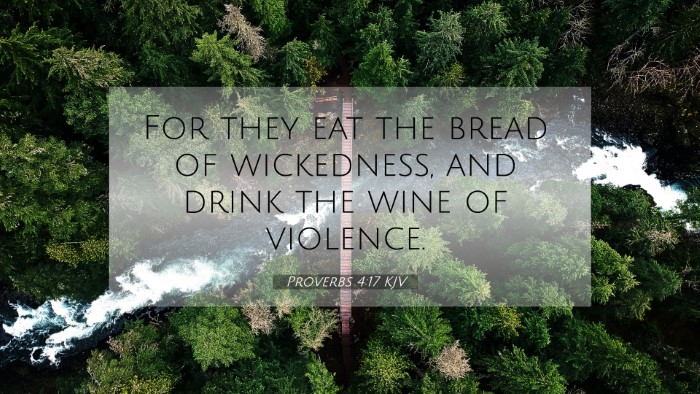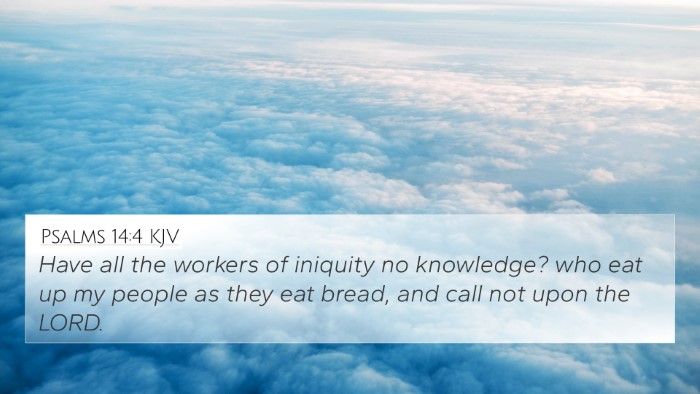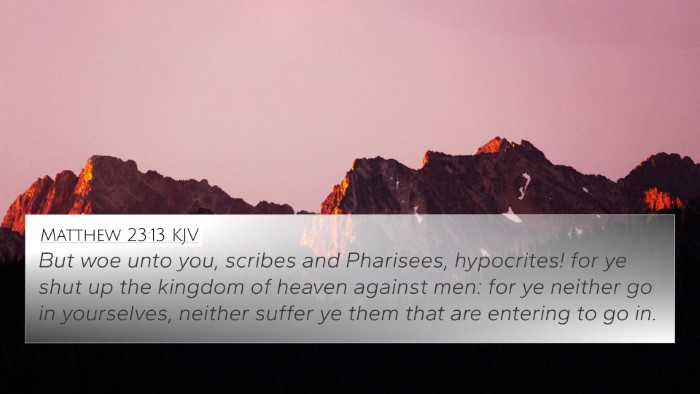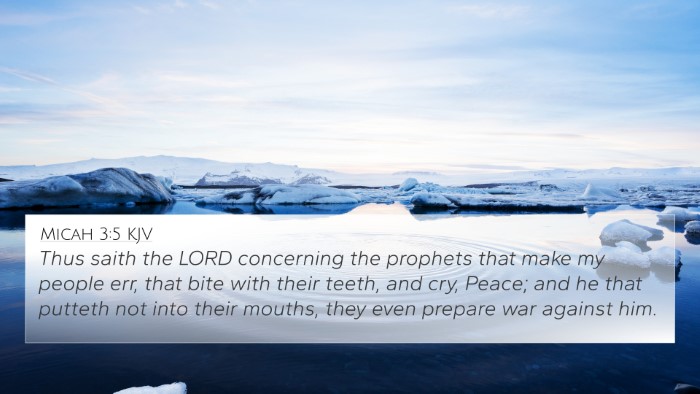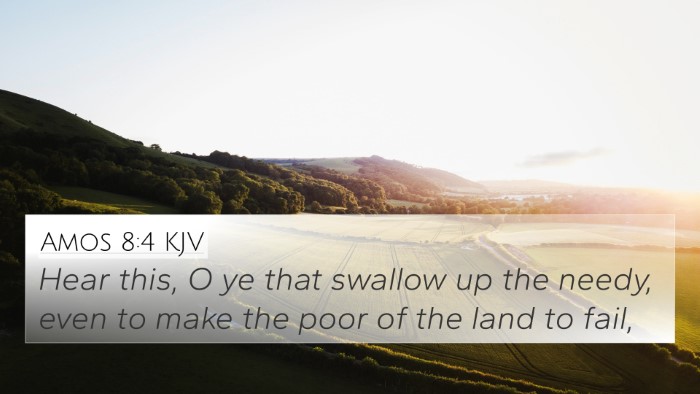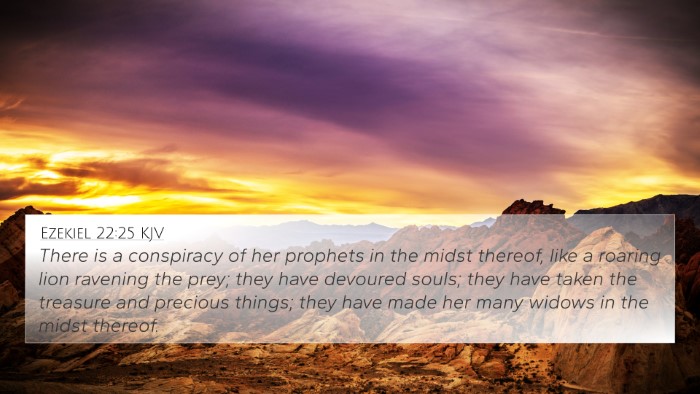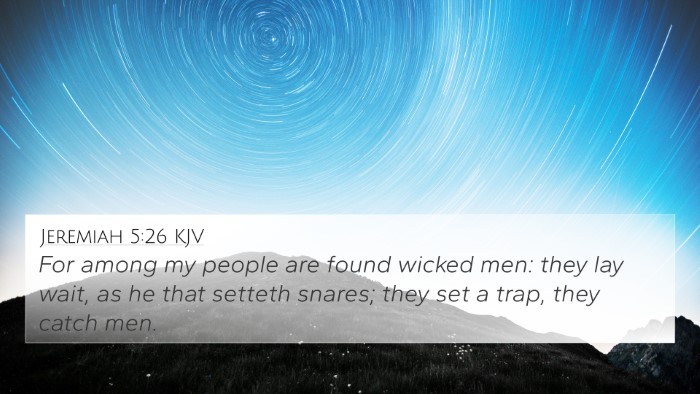Understanding Proverbs 4:17
Proverbs 4:17 states, “For they eat the bread of wickedness, and drink the wine of violence.” This verse emphasizes the dangers of engaging in wickedness and violence, illustrating the spiritual and moral consequences that arise from such behaviors. Below is a summarized meaning of the verse based on insights from renowned public domain commentaries by Matthew Henry, Albert Barnes, and Adam Clarke.
Meaning and Interpretation
This verse is a poetic depiction of the nature of wickedness and violence, emphasizing that those who engage in such deeds consume the distorted fruits of their actions. Each element within this verse serves as a metaphor for the outcomes of living a life contrary to divine instruction.
1. The Bread of Wickedness
Matthew Henry's Commentary: Henry explains that the “bread of wickedness” signifies not only the sustenance derived from immoral actions but also the idea that wicked individuals often base their lives on deception and malice. Such bread nourishes their sinful nature, leading them deeper into iniquity.
Albert Barnes' Notes: Barnes adds that bread, as a staple of life, symbolizes what wickedness yields. By participating in sinful acts, individuals fortify their spiritual corruption, and this sustenance is ultimately harmful, resulting in moral degradation.
2. The Wine of Violence
Adam Clarke's Commentary: Clark suggests that the “wine of violence” symbolizes an intoxication by wrongful actions. It paints a vivid picture of how violence fuels chaos and lawlessness, leading to societal decay. Those who embrace violence substitute wholesome living for tumult and despair.
Matthew Henry's Insight: Henry further notes that this wine represents the pleasures and indulgences that come from wrongdoing, yet these pleasures are deceptive as they mask the sobering reality of the consequences tied to such actions.
Cross-References and Thematic Connections
Proverbs 4:17 has numerous connections with other biblical texts, reinforcing the themes of wickedness, violence, and the consequences of immoral living. Below are select cross-references:
- Proverbs 1:11-14 – The call of the wicked and the allure of sinful schemes.
- Romans 6:23 – The wages of sin is death, contrasting the rewards of righteousness.
- Galatians 6:7-8 – A warning that one will reap what they sow, emphasizing moral responsibility.
- James 3:16 – Where there is strife and envy, there is disorder and every evil work.
- Psalm 34:21 – Evil shall slay the wicked, a direct consequence of living in wrongdoing.
- Isaiah 57:20-21 – The wicked are like the troubled sea, expressing unrest in their lives.
- Proverbs 2:12-15 – Wisdom delivers from the way of the evil man, illustrating a choice to depart from wickedness.
Applications and Reflections
This verse serves as a poignant reminder of the serious repercussions of choosing a life marked by wickedness and violence. Believers are encouraged to reflect on their choices and strive for a life of righteousness.
As individuals engage in a cross-reference Bible study, they may find ways to connect the themes in Proverbs 4:17 with various teachings throughout Scripture, deepening their understanding of biblical principles.
Using Bible Cross-References as a Tool for Understanding
Tools for Bible cross-referencing are crucial for deepening one’s study of scripture. A comprehensive cross-reference guide helps in identifying connections between Old and New Testament themes, revealing how biblical principles interlace throughout scripture.
Many believers wonder how to find cross-references in the Bible effectively. A good starting point is using a Bible concordance or appropriate reference resources designed for facilitated study.
Conclusion
In summary, Proverbs 4:17 serves as a stark warning against succumbing to the allure of wickedness and violence. The verse encourages reflection on one’s life choices and the pursuit of wisdom as encapsulated in the Bible. By exploring cross-references, individuals can gain a richer understanding of the interconnectedness of biblical teachings and apply these truths in their lives.
